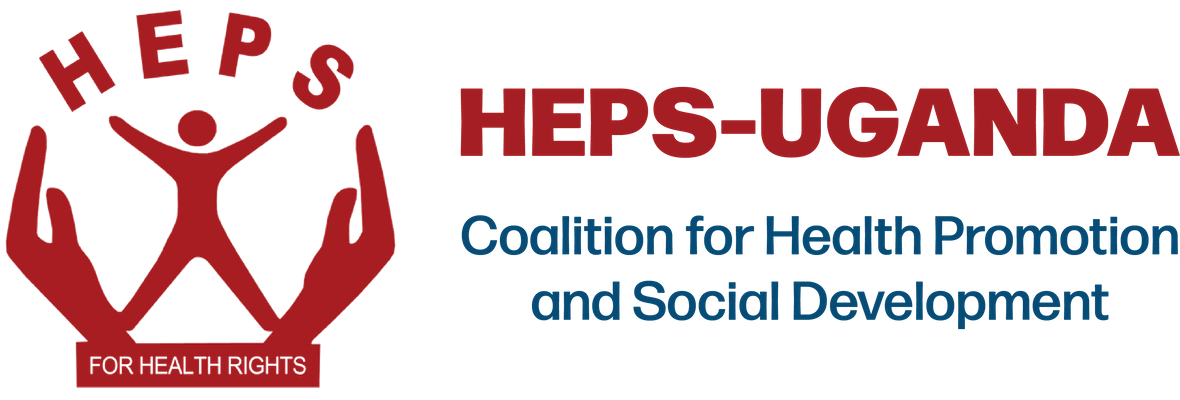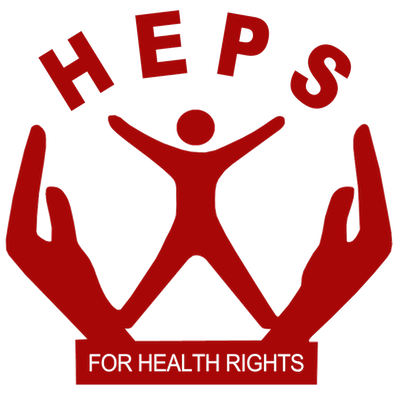
ACTION APPEAL: STRENGTHEN MENTAL HEALTH SUPPORT SYSTEMS IN UGANDA
#WorldMentalHealthDay
October 10, 2025, Kampala – On World Mental Health Day 2025, HEPS-Uganda calls for urgent, decisive action to strengthen mental health support systems, especially for crisis-affected and vulnerable populations.
Uganda is in the middle of a silent mental health crisis. In May 2022, the Ministry of Health stated that up to 32% of adults and a quarter of children (about 43.7 million people) suffered from mental illness, with depression, anxiety, and trauma-related conditions. Police data show a troubling rise in reported suicide cases, from 165 in 2023 to 218 in 2024, a 26% increase. This data likely underestimates the true scale of the crisis due to underreporting.
This year’s theme, “Access to Services: Mental Health in Catastrophes and Emergencies”, highlights a specific vulnerability of refugees and communities recovering from conflict.
Issues that need urgent attention:
-
Deep-seated social stigma and the attribution of mental illness to non-medical causes force millions to suffer in silence, preventing them from seeking professional help.
-
Mental health is appallingly funded, receiving less than 1% of Uganda’s health budget – far below the WHO’s recommended 5%. This leaves community-based and rural services critically under-resourced.
-
With only about one psychiatrist per million people, the professional capacity to treat the 14 million affected Ugandans is woefully inadequate.
Our call to action:
We urge the Ministry of Health and Parliament to take immediate leadership by:
1) Urgently increase the allocation for mental health services to ensure sufficient funding for community-based care, especially in rural and crisis-affected areas.
2) Fully implement the policy to integrate mental health services into primary healthcare and invest in training community health workers (CHWs) and non-specialist personnel in basic psychosocial support.
3) Demonstrate strong political will to implement and enforce the Mental Health Act (2018) and lead multisectoral coordination to combat stigma and ensure access to vital care.
Let us seize the opportunity of the current global momentum to strengthen resilience, provide lasting recovery, and ensure every Ugandan, especially those most vulnerable, can access the mental health support they desperately need.
From our partners,
GNP+ released the seventh episode of the “PLHIV Leaders Now” podcast series this week. Working alongside communities and leaders living with HIV, launched the series earlier this year. The series aims to inspire leadership within the PLHIV community and celebrate the legacy of liberation leadership. It encourages young PLHIV to take on leadership roles and drives narrative change to promote viral suppression, improve quality of life, end AIDS-related deaths, and prevent new HIV infections.
With support from ViiV Healthcare, ICWEA hosted a workshop on 2 October with academia to demystify women’s involvement in research and advance the HIV Prevention Choice Manifesto. The Manifesto focuses on community-led leadership and the importance of choice in HIV prevention for African women and girls. The goal is to elevate the voices of women and girls to shape HIV prevention policies and research priorities.
A CEHURD team spent three days in Machakos, Kenya, establishing partnerships with several institutions. These organizations have committed to collaborating, connecting, and working toward shared objectives of leveraging the Universal Periodic Review (UPR) reporting mechanism to advance sexual and reproductive health and rights (SRHR).
From your community,
Kyankwanzi: Kyankwanzi District launched a Yellow Fever vaccination campaign. Yellow Fever is spread by the Aedes aegypti mosquito and can cause fever, vomiting, yellowing of the eyes, and bleeding. Vaccination is the best way to prevent it, and it offers lifelong protection. Each vaccinated person will receive a card, which they can later exchange for a Yellow Fever Card required for international travel.
Mityana: Health officials and civil society organizations (CSOs) in Mityana District have expressed deep concern over the increasing number of teenage girls getting pregnant before the age of 18. Experts say the trend is being fueled by a lack of SRHR awareness among young people, coupled with fear of seeking professional care.
Lira: Lira regional hospital is rewriting the narrative on maternal health by achieving a 10% reduction in deaths related to pregnancy and childbirth complications over the past financial year. This breakthrough is largely pinned on the introduction of a state-of-the-art Type C advanced life support ambulance, the sole unit of its caliber serving the area.
Jinja: Jinja authorities have been warned against vaccine hesitancy as district authorities join 16 counterparts in undertaking the mass vaccination. The warning by Assistant Resident District Commissioner of Jinja, George William Bameka. During the launch, the CAO Lillian Nakamatte also urged the public to embrace the drive to boost their immunity against yellow fever.
From Uganda,
Low male involvement in family planning continues to undermine progress
Men, despite being the decision-makers in their families, are often sidelined as passive observers rather than engaged participants. In Uganda, this dynamic has resulted in women carrying the heavier responsibility of contraceptive uptake, stigma, and health risks, while men continue to control decisions about family size, finances, and healthcare.
Ministry of Health warns about sepsis disease: Silent but deadly
The Ministry of Health launched the National Sepsis Day, highlighting the urgent need to combat what experts describe as a “silent but deadly condition” that kills millions globally each year. Sepsis, commonly known as blood poisoning, is one of the leading causes of maternal and newborn deaths in Uganda, and four in every 10 deaths linked to sepsis result from germs that fail to respond to available medicines. Globally, about 30% of sepsis deaths occur in Africa.
Uganda launches yellow fever vaccination campaign for 17 districts
The Ministry of Health launched the third and final phase of the Yellow Fever preventive mass vaccination campaign, targeting five million individuals across 17 districts in the Mubende and Busoga sub-regions. The launch of phase 3B, held at Iganga district ground on 30th, under the theme, ‘One injection, Lifelong Protection Eliminate Yellow Fever Epidemics by 2026‘.
From the region,
Kenya: Kenya faces a shortage of eye specialists, health officials said as the country marked World Sight Day on October 9, 2025. Out of a population exceeding 50 million, there are only about 640 optometrists and fewer than 200 ophthalmologists, a gap that limits access to care, especially in rural areas. Officials emphasized the need for government and policymakers to increase investment in eye health.
Nigeria is rolling out one of the largest integrated vaccination campaigns in its history, aiming to protect around 106 million children against measles, rubella, and poliomyelitis. The nationwide initiative will combine multiple vaccines and child health services in a single drive, ensuring efficient delivery to children across the country.
Global health security
Ebola outbreak in DRC shows signs of decline: The Ebola outbreak in DR Congo is “showing encouraging signs of decline,” though risks remain, the WHO said. The update from the WHO Regional Office for Africa shows that there have been 64 cases in total (53 confirmed and 11 probable); 42 deaths; 9 cases discharged; and 13 are currently admitted. As of 5 October, a total of 4,115 people had been vaccinated.
New funding boosts Africa’s vaccine research review: New funding to the Advancing Clinical Trials Excellence in Africa (AVAREF) could help accelerate the development of life-saving vaccines to contain infectious disease outbreaks on the continent. The Coalition for Epidemic Preparedness Innovations (CEPI) is providing USD 1 million to AVAREF as part of a new two-year project to enhance the efficiency with which African regulatory agencies and ethics committees – who are already part of the AVAREF network – review and make emergency decisions on multi-country clinical trial applications.







